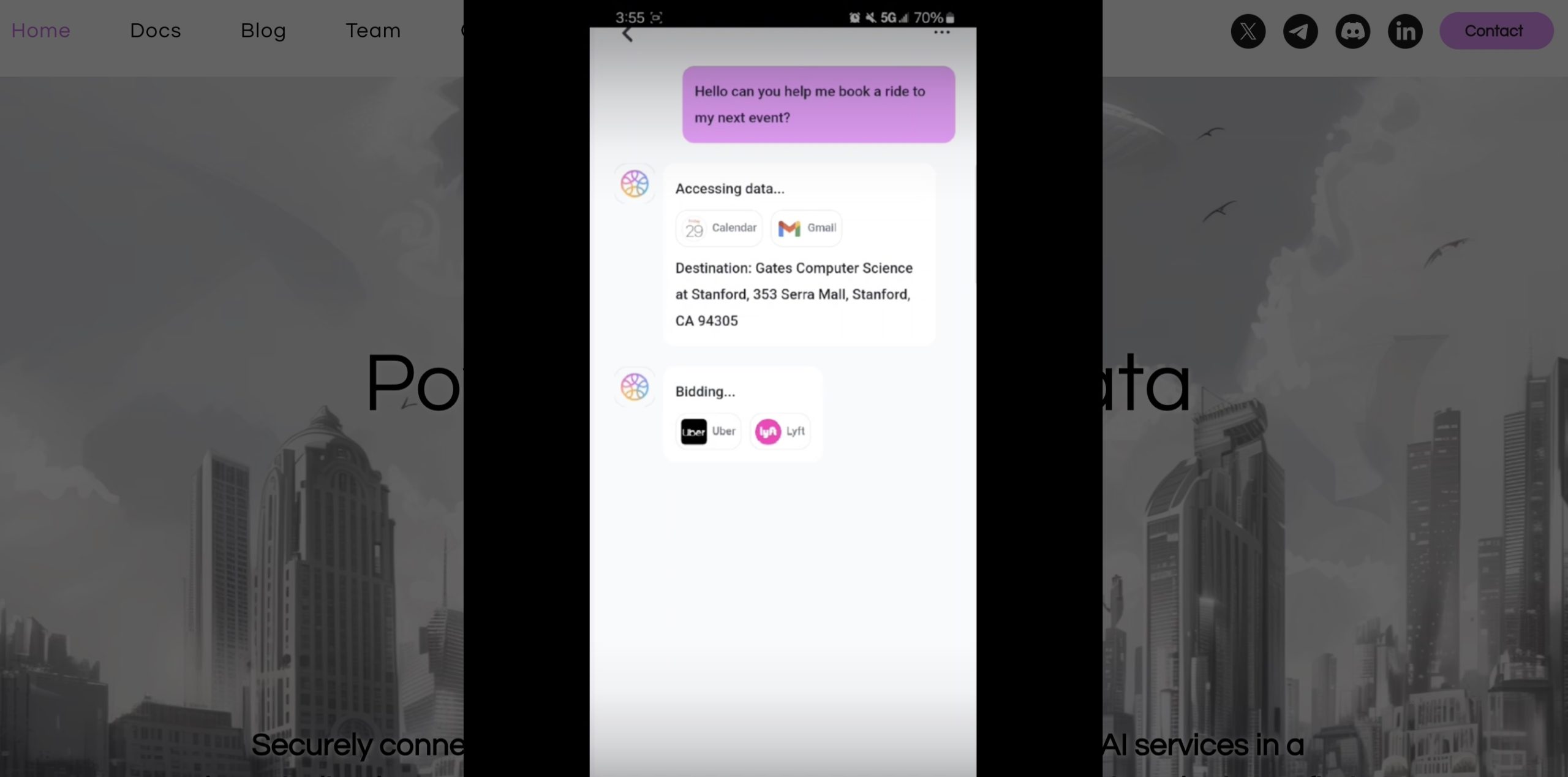PIN AI (Personal Intelligence Network) has launched a mobile app aimed at redefining how individuals manage, secure, and leverage their personal data. Founded by alumni from Columbia, MIT, and Stanford, PIN AI is committed to fostering trusted AI adoption through transparent infrastructure that aligns with user preferences. By prioritizing individual needs and rejecting data centralization, PIN AI ensures that AI serves users, not the interests of Big Tech.
The Problem: Data Exploitation by Big Tech
In today’s digital landscape, personal data is a valuable commodity. Big Tech companies collect vast amounts of user data, which is then used for targeted advertising, profiling, and other purposes. This data collection often occurs without the explicit consent or full awareness of users. As a result, individuals have limited control over their own data and how it is used.
The rise of AI has further exacerbated these concerns. Many AI tools and assistants rely on user data to function effectively. However, this data is often stored on corporate servers, outside of the user’s control. This raises privacy concerns and the risk of data breaches or misuse.
PIN AI’s Solution: A Decentralized, User-Focused Approach
PIN AI offers an alternative approach to personal AI, one that prioritizes user control, privacy, and security. The platform builds a versatile, user-focused data bank, solving a critical challenge for developers who struggle to access contextual, high-quality data in closed AI ecosystems. By democratizing data monopolies, PIN AI transforms this dynamic, giving users control over their personal data while offering developers access to multi-category insights like shopping, investing, and social media they couldn’t otherwise obtain.
PIN AI’s mobile app is at the heart of this transformation. The app offers a secure infrastructure that keeps user data safely stored on devices, not in centralized servers. Users can connect various data sources—such as Gmail, social media, and other web2 apps like financial trading history, dating, and chat history—to train their personal AI for better understanding in order to serve them.
Key Features and Functionalities
- Decentralized Data Storage: PIN AI stores user data on personal devices, rather than centralized servers, giving users complete control over their data.
- User-Controlled Access: Users can control which data sources are connected to their personal AI and grant or revoke access as desired.
- Personalized AI Models: PIN AI allows users to create their own personalized AI models, powered by DeepSeek or Llama, that are tailored to their individual preferences and needs.
- Secure Authentication: The authentication process is seamless, with credentials securely stored in a Trusted Execution Environment (TEE) where all computations occur on encrypted data.
- Blockchain Security: Blockchain protocols ensure maximum security—no one, not even PIN AI, can access the encryption keys.
- Guardian of Data (God Model): This feature evaluates the knowledge of personal AI so users can track how well their AI knows them and help it grow.
- Ask PIN AI: This functionality makes everyday tasks—from buying gifts to coordinating travel to allocating trading capital—personalized and effortless.
The Benefits of PIN AI
- Enhanced Privacy:By storing data on personal devices and using blockchain security, PIN AI provides a high level of privacy and data protection.
- User Empowerment: PIN AI puts users in control of their data, allowing them to decide how it is used and who has access to it.
- Personalized AI Experience: PIN AI enables users to create AI models that are tailored to their individual needs and preferences, resulting in a more personalized and relevant experience.
- Data Monetization: PIN AI allows users to potentially monetize their data by sharing it with developers in exchange for compensation.
- Open and Interoperable Ecosystem:PIN AI leverages blockchain protocols to create an open and interoperable ecosystem that can connect to new protocols as they emerge.
PIN AI vs. Big Tech AI
PIN AI stands in stark contrast to the AI offerings of Big Tech companies. Big Tech AI typically relies on centralized data storage, opaque algorithms, and a lack of user control. This can lead to privacy concerns, data exploitation, and a one-size-fits-all AI experience.
PIN AI, on the other hand, offers a decentralized, user-focused approach that prioritizes privacy, control, and personalization. By putting users in charge of their data and AI models, PIN AI empowers individuals to benefit from AI without sacrificing their privacy or autonomy.
PIN AI and the Agent Economy
PIN AI aims to lay the groundwork for the agent economy, where personal AIs interact with the external AI agent ecosystem, interconnecting individual intent with a world of services. In this vision, users’ personal AIs will be able to seamlessly access and utilize various AI agents to perform tasks, access information, and make decisions on their behalf.
PIN AI’s decentralized and user-centric approach is well-suited for the agent economy. By giving users control over their data and AI models, PIN AI ensures that the agent economy is built on a foundation of privacy, security, and user empowerment.
The Humane AI Pin: A Different Approach to Personal AI
While PIN AI focuses on software and data control, other companies are developing AI-powered hardware devices. The Humane AI Pin, for example, is a screenless, wearable device that aims to replace smartphones. It can perform various functions such as calling, texting, taking photos or videos, listening to music, and more.
However, the Humane AI Pin has faced criticism for its limited functionality and high cost. Some users have noted that it cannot perform basic tasks such as setting an alarm or adding events to a calendar. Additionally, the device requires a monthly subscription fee, adding to the overall cost.
The Future of Personal AI
PIN AI represents a significant step forward in the evolution of personal AI. By prioritizing user control, privacy, and security, PIN AI is paving the way for a future where AI empowers individuals without sacrificing their autonomy or data.
As AI continues to evolve, it is crucial that users have access to tools and platforms that allow them to control their data and AI experiences. PIN AI is at the forefront of this movement, empowering users to take back control of their data and harness the power of AI for their own benefit.
Conclusion
PIN AI’s launch marks a pivotal moment in the quest for user-centric AI. By providing a decentralized, secure, and customizable platform, PIN AI empowers individuals to reclaim control over their personal data and shape their AI experiences. As the AI landscape continues to evolve, PIN AI’s commitment to privacy, transparency, and user empowerment positions it as a key player in the future of personal AI. With its innovative approach and focus on user needs, PIN AI has the potential to revolutionize the way we interact with AI and unlock a new era of personalized, secure, and user-controlled AI experiences.


Leave a Reply